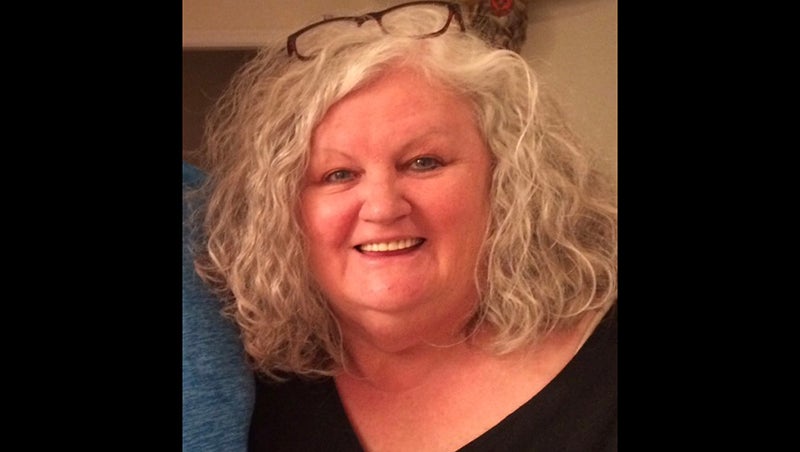Column: Proposed state budget would deal new blows to the First Amendment’s Establishment Clause
Published 8:54 am Sunday, June 16, 2019
by Aditi Kharod
In 1971, U.S. Supreme Court Chief Justice Warren Burger wrote an opinion in the landmark case Lemon v. Kurtzman that set forth a three-pronged test lawmakers should use to avoid violating the Establishment Clause of the First Amendment of the Constitution, which states that “Congress shall make no law respecting an establishment of religion.” The three prongs of the test were these:
1. The law must have a secular legislative purpose.
2. The law must not, in effect, either promote or inhibit religion.
3. The law must not foster “excessive government entanglement with religion.”
And while, as in so many other areas, the Court has chipped away at the Lemon ruling down through the years, the degree to which government and our elected officials regularly and blatantly flaunt the Establishment Clause is striking.
The first time I visited the North Carolina Legislative Building to watch the state House convene, I wondered whether anybody else remembered either the Establishment Clause or the Lemon test as all those present were told to rise for prayer. I rose in sheer confusion, wondering how discussing “Jesus Christ, Lord and Savior” in a legislative session would not constitute excessive government entanglement with religion. But the daily prayers are probably the least worrisome Establishment Clause violation emanating from the legislature this year. Provisions that allot funding for religious organizations in the 2019 budget raise even more serious questions.
In total, the Senate budget would appropriate more than $2 million in recurring and nonrecurring funds to treatment centers and crisis pregnancy centers that feature an explicitly Christian focus. The Christ Centered Recovery Program, based in Morganton, would receive $100,000 in nonrecurring money to fund a “discipleship program” whose treatment consists almost solely of a “safe Christian environment” with daily Bible study, biblical counseling and worship services that aims to give men suffering from substance addiction “hope through Jesus Christ,” according to the group’s website.
The Bridge to Recovery in Monroe, “a clinical addiction resource center with a gentle Christian emphasis,” would receive $600,000 in nonrecurring money to provide a “Christian support system” for those who “rely on the Bible for spiritual support” and treat the “mind, body, and spirit,” according to its website. “Bridge to Recovery offers people a sense of their worth, not just from our standpoint but from the standpoint of Jesus Christ,” the website proclaims. “God is Good!”
This is not to say that these centers should not exist. If people are genuinely getting help by engaging in “spiritual recovery,” more power to them. But providing public funding to explicitly religious centers like these, even if the centers serve the overall secular purpose of substance abuse treatment, wildly fails the Lemon test and is (or ought to be) wholly unconstitutional.
Crisis pregnancy centers are another beast altogether. Self-proclaimed ministries like Mountain Area Pregnancy Services, based in Asheville, are not only explicitly religious. (The Asheville Citizen-Times reported last year that portraits of Jesus adorn the walls, and employees talk about “counseling from a Biblical perspective.”) They are also dangerous.
Crisis pregnancy centers are organizations which, despite being staffed by unlicensed volunteers and not subject to any type of regulation, present the image of an unbiased professional healthcare clinic. There are often no medical professionals present, although volunteers wear white coats and require patients to fill out paperwork to give the impression that they are doing legitimate medical work. In doing so, they propagate medical misinformation, largely exaggerating the potential dangers of having an abortion.
Some of the more frequently used lies include claims about an increased risk of breast cancer after having an abortion, an increase in mental health disorders, and something called “post-abortion syndrome,” according to a report in the Northwestern Journal of Law & Social Policy. All of this deception is for the ultimate purpose of dissuading women from even considering having an abortion or using any form of contraception besides abstinence.
A 2018 report by Dr. Amy Bryant and Dr. Jonas Swartz, who both work at the UNC-Chapel Hill School of Medicine, decried crisis pregnancy centers as a violation of the ethical code of medical professionals, because the “religious ideology of these centers’ owners and employees takes priority over the health and well-being of the women seeking care at these centers,” and women therefore do not receive the comprehensive information required to make a well-informed medical decision.
In short, crisis pregnancy centers are participating in false advertising techniques that, at best, confuse women in need of medical advice, and at worst, force them into making an unsustainable medical decision that could kill them. These centers should not be funded by the government. In fact, they should not be allowed to practice their deceptions at all.
Budget provisions for these explicitly Christian substance abuse treatment centers and crisis pregnancy centers are just another step toward institutionalizing explicitly sectarian values on which some conservatives claim this country was founded, and the state legislature shows no signs of going in any other direction. Those still committed to a secular democracy should take note.
Aditi Kharod is a student at UNC Chapel Hill and an intern at N.C. Policy Watch, where this article first appeared.
FOR MORE COLUMNS AND LETTERS TO THE EDITOR, CHECK OUT OUR OPINION PAGE.





